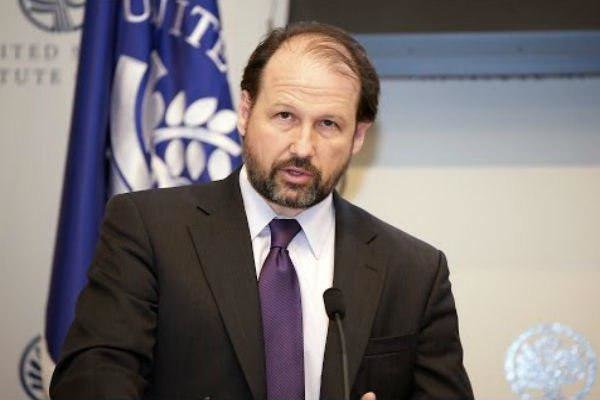Arms embargo is just a pretext for U.S. to build political support to return UN sanctions on Iran

Daryl G. Kimball, the executive director at U.S. Arms Control Association, tells the Tehran Times that a move by the Trump administration to extend arms embargo is just “a pretext for building sufficient political support for snapping back UN sanctions under the terms of UNSCR 2231.”
Here is the text of the interview with Kimball:
Question: UN Security Council Resolution 2231, which enshrined the 2015 nuclear deal between world powers and Tehran, envisages lifting arms embargo on Iran starting this October. However, the U.S. proposed a draft resolution to the UN Security Council to “indefinitely” extend the arms embargo against Iran. What are the main motives of the U.S. for such an approach?
Answer: Based on my reading of the Trump administration’s goals, they are not only concerned about constraining Iran’s ability to acquire advanced weapons, but they are looking for a pretext for building sufficient political support for snapping back UN sanctions under the terms of UNSC 2231.
Q: Britain, France and Germany say they will not back U.S. efforts to extend UN arms embargo on Iran. In view of such a position, how is it possible that the U.S. succeed?
A: The recent UN Security Council meeting at which these issues were debated it was underscored that the E3 and the EU as a whole believe that the JCPOA is a win-win solution and that both the United States and Iran need to return to compliance with its terms and requirements. They also have made it clear that they do not recognize the United States assertion that it still has the power, as a party to the JCPOA, to trigger the snapback of sanctions because the United States has publicly announced repeatedly and publicly that it is no longer party to the JCPOA and has not participated in recent meetings of the Joint Commission that is responsible for JCPOA implementation.
Q: Germany, France, and the UK have repeatedly underlined their commitment to the 2015 deal but they do not make efforts to save the deal and this approach has convinced Iran that the JCPOA does not serve Tehran’s interests. So how is it possible to save the deal from total collapse?
A: Germany, France, the UK, Russia, and China, and many other states, have all said repeatedly that they support the JCPOA and the have made significant efforts to try to ensure that Iran continues to get the main benefits of the deal — sanctions relief — but these governments are not omnipotent and they do not have total control over the market choices of businesses and banks in their countries. Unfortunately and regrettably, the Trump administration has reimposed secondary sanctions that make it difficult and in some cases impossible for companies and banks outside the United States to engage in business in and with Iran.
The way forward is for Iran to exercise restraint with respect to its nuclear program, fully cooperate with the IAEA’s inspection and monitoring responsibilities, and to return to full compliance with the original terms of the JCPOA if and when the United States waives the key nuclear-related sanctions that have been put in place by the Trump administration. There is an election in November in the United States and there is a good possibility that the current “maximum pressure” policy of Donald Trump will not last and the JCPOA can be revived in a way that serves the best interests of all parties.
The executive director at the U.S. Arms Control Association says the European trio has “made it clear that they do not recognize the United States assertion that it still has the power, as a party to the JCPOA, to trigger the snapback of sanctions because the United States has publicly announced repeatedly and publicly that it is no longer party to the JCPOA.
